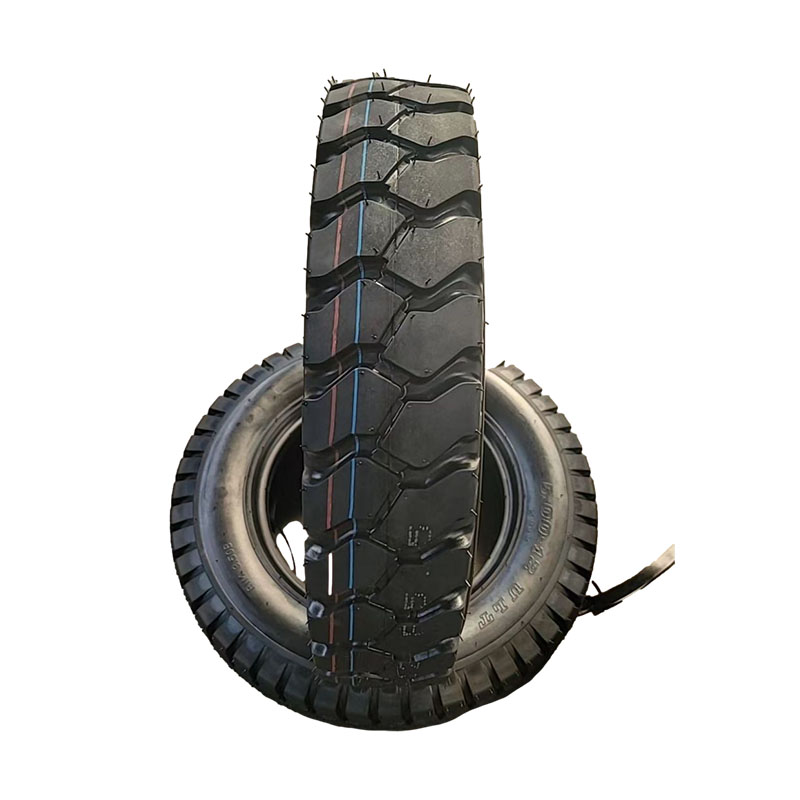Features of Heavy-Duty Tricycle Tires
2024-06-21
Heavy-duty tricycle tires are specially designed tires that offer durability, stability, and performance suitable for tricycles used in various industrial, commercial, or heavy-duty applications. Unlike standard tricycle tires used for recreational purposes, heavy-duty tricycle tires are built to withstand rugged terrains, carry heavier loads, and endure frequent use. Here’s an overview of heavy-duty tricycle tires, their features, applications, and considerations:
Features of Heavy-Duty Tricycle Tires:
1. Construction and Materials:
- High-Density Rubber: Provides durability and resistance to wear and tear, suitable for extended use in demanding environments.
- Reinforced Sidewalls: Enhances strength and stability, allowing the tire to support heavier loads without deformation.
2. Tread Design:
- Aggressive Tread Patterns: Designed for traction and grip on various surfaces, including gravel, dirt roads, or uneven terrain.
- Deep Grooves: Facilitate water evacuation and improve traction in wet or muddy conditions.
3. Size and Load Capacity:
- Available in various sizes to fit different tricycle models and wheel configurations.
- Designed to accommodate higher load capacities compared to standard tricycle tires, suitable for transporting goods or equipment.
4. Puncture Resistance:
- Thicker Tread: Offers increased resistance to punctures and cuts from sharp objects or debris on the ground.
- Anti-Abrasion Properties: Helps maintain tire integrity and longevity under heavy use.
5. Compatibility:
- Designed for specific tricycle applications, such as cargo tricycles, industrial tricycles used in warehouses, delivery tricycles, or passenger-carrying tricycles.
Applications of Heavy-Duty Tricycle Tires:
1. Cargo Transport:
- Used on cargo tricycles or trike trucks for transporting goods, parcels, or materials in urban areas or industrial settings.
- Provides reliable performance and load-bearing capacity for deliveries and logistics operations.
2. Industrial Use:
- Employed in warehouses, factories, and manufacturing facilities where tricycles are used for intra-facility transport of equipment, tools, or parts.
- Supports heavy-duty operations and withstands frequent use in industrial environments.
3. Commercial Services:
- Utilized by delivery services, postal carriers, and food vendors operating tricycles for local deliveries in urban environments.
- Ensures dependable performance and durability over extended routes and varying road conditions.
4. Recreational and Passenger Transport:
- Adapted for passenger-carrying tricycles used in recreational parks, tourist areas, or rental services.
- Offers comfort, stability, and safety for passengers while navigating diverse terrains.
Considerations for Heavy-Duty Tricycle Tires:
1. Maintenance and Care:
- Regularly inspect tires for signs of wear, damage, or deterioration.
- Maintain optimal tire pressure to ensure proper performance and longevity.
2. Terrain and Environmental Conditions:
- Choose tires with tread patterns suitable for the predominant terrain and weather conditions in the operating environment.
- Consider factors such as wet surfaces, steep gradients, or rough terrain that may affect tire performance.
3. Load Capacity:
- Select tires with adequate load-bearing capacity to safely support the maximum anticipated load carried by the tricycle.
- Ensure compliance with manufacturer specifications regarding tire size, load ratings, and installation guidelines.
Heavy-duty tricycle tires are essential components that contribute to the reliability, safety, and efficiency of tricycle operations in commercial, industrial, and recreational settings. By choosing tires designed for heavy-duty applications and maintaining them properly, users can maximize the performance and lifespan of their tricycles under challenging conditions.



